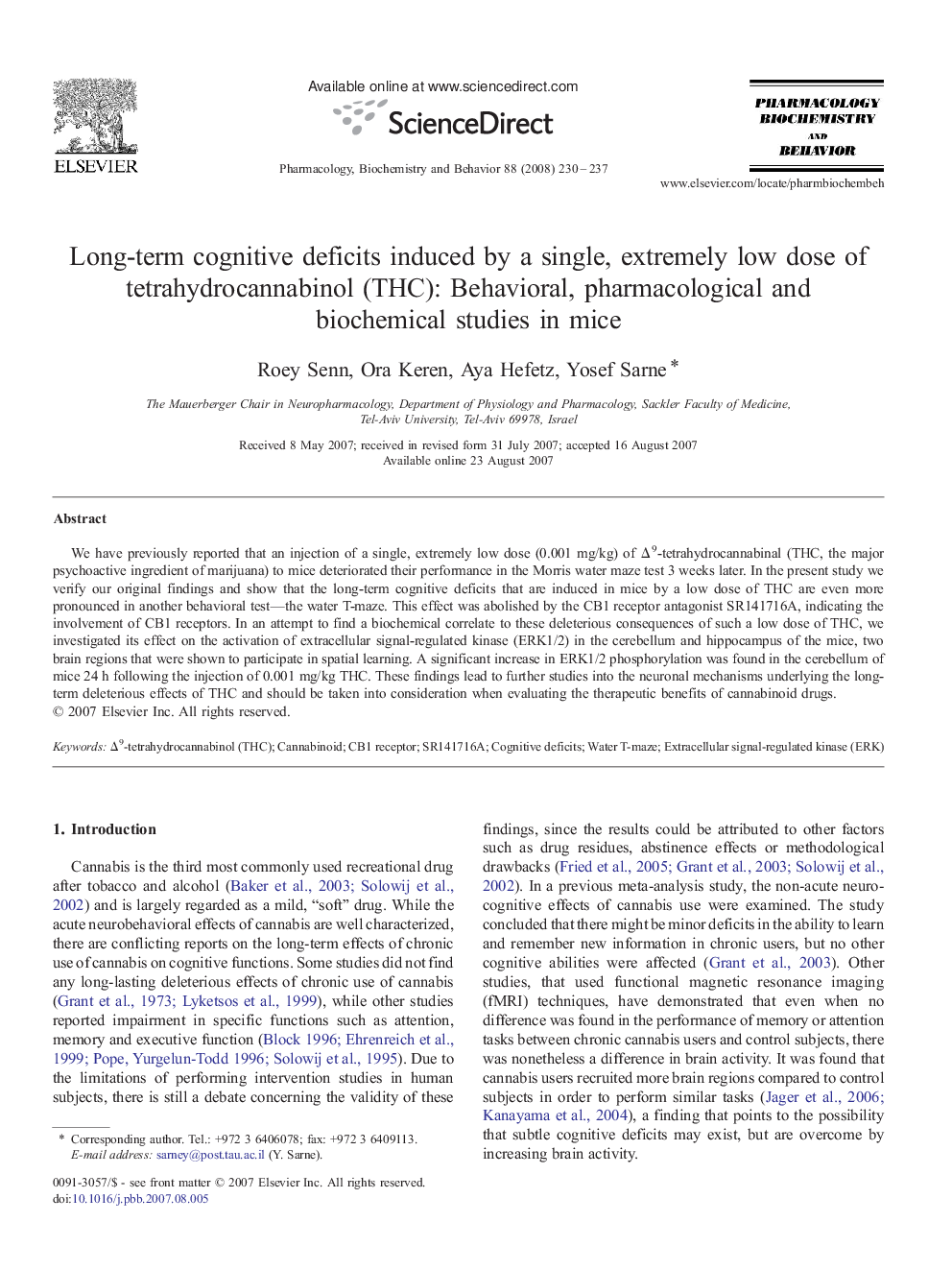| Article ID | Journal | Published Year | Pages | File Type |
|---|---|---|---|---|
| 2013638 | Pharmacology Biochemistry and Behavior | 2008 | 8 Pages |
We have previously reported that an injection of a single, extremely low dose (0.001 mg/kg) of Δ9-tetrahydrocannabinal (THC, the major psychoactive ingredient of marijuana) to mice deteriorated their performance in the Morris water maze test 3 weeks later. In the present study we verify our original findings and show that the long-term cognitive deficits that are induced in mice by a low dose of THC are even more pronounced in another behavioral test—the water T-maze. This effect was abolished by the CB1 receptor antagonist SR141716A, indicating the involvement of CB1 receptors. In an attempt to find a biochemical correlate to these deleterious consequences of such a low dose of THC, we investigated its effect on the activation of extracellular signal-regulated kinase (ERK1/2) in the cerebellum and hippocampus of the mice, two brain regions that were shown to participate in spatial learning. A significant increase in ERK1/2 phosphorylation was found in the cerebellum of mice 24 h following the injection of 0.001 mg/kg THC. These findings lead to further studies into the neuronal mechanisms underlying the long-term deleterious effects of THC and should be taken into consideration when evaluating the therapeutic benefits of cannabinoid drugs.
